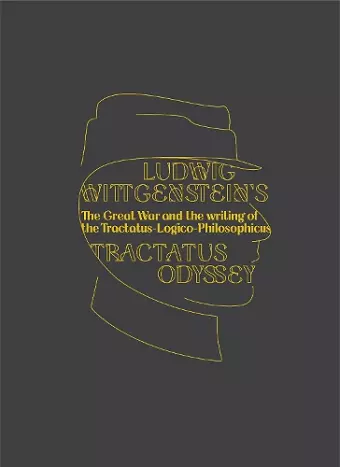Ludwig Wittgenstein's Tractatus Odyssey
The influences behind the writing of the Tractatus-Logico-Philosophicus
Allan Janik editor Radmila Schweitzer editor
Format:Hardback
Publisher:DoppelHouse Press
Published:28th Dec '23
Currently unavailable, our supplier has not provided us a restock date

A co-publication with the Wittgenstein Initiative in Vienna, who will do promotion for the book in Europe.
DRCs and ARCs upon request: Fully available as a print-to-order galley
Outreach to philosophy, art, and literature departments at American and British universities
Social media campaign
National and international print media campaign
Promotion through the Austrian embassies in various European countries in coordination with the traveling exhibit upon which this book is based. Warsaw, Budapest, Paris, Rome, Moscow, Oslo, and more.
Outreach through the Austrian Cultural Forum, New York City.
Contributor Marjorie Perloff's new book and translation, Wittgenstein's Private Notebooks, was covered by Jennifer Szalai in the New York Times, with other reviews appearing in The Guardian, TLS, New York Review of Books, and others. Specifically these diaries are the groundwork for the Tractatus, and her book lays the groundwork for the DoppelHouse Tractatus Odyssey book.
Charts Wittgenstein’s intellectual development, personal struggles, and movements from Vienna to Cambridge and Norway, and to the battlegrounds of WWI, where he completed what was destined to become the most influential philosophy book of the 20th century.
Ludwig Wittgenstein’s way to the Tractatus Logico-Philosophicus, one of the ground-breaking works in the history of philosophy, can rightly be termed an Odyssey. Both in terms of his movements and his intellectual development in the course of writing it, the Tractatus incorporated an exciting, improbable journey. A compendium of scholars has come together at the 100th anniversary of the work’s first official publication in 1922 to detail the main stations in Wittgenstein’s life that would entirely transform philosophy. The years 1912 to 1922 are illuminated through photos, military maps, and letters against the backdrop of one of the most dramatic periods in world history.
The complex theory of language developed by Wittgenstein In the Tractatus had an enormous influence not only on philosophy, but extended also to literature, music, film, painting, architecture, anthropology, and economics. Its uniqueness and rigor challenge our perceptions to this day.
Ludwig Wittgenstein’s Tractatus Odyssey is a day-by-day account of the creative process and dramatic context in which one of the greatest and most influential texts of the modern age came to be. With leading scholars in the field setting the scene, and using a remarkable number of primary documents, this book shows the reader how this key text in modern philosophy was so crucially affected by the war in which its author took such perilous part. At times it is almost as though we are with Wittgenstein, directly experiencing how he worked to solve the problems he saw in logic, while navigating the perils and terrors of the Great War on the Eastern Front, coming to terms with the relation between his own ethical self and the world along the way. Add to that the personal tragedies, ironies and accidents that led—eventually—to the Tractatus’s publication after the war, and this shows that the book’s odyssey is a tale most worthy of the telling.
—Steven Beller, author of Vienna and the Jews and A Concise History of Austria
Under the logical and literary brilliance of the Tractatus there was a remarkable human being searching for his truth, with whom we can identify today.
—Pierre Stonborough, grandson of Margaret Stonborough-Wittgenstein
Wittgenstein’s path to the publication of his Tractatus was a fraught journey filled with military calamity, personal trials, and philosophical adventure. Readers of this volume will get a captivating multi-media account of the military maneuvers and documents, the personal correspondence, the personal diaries and philosophical notebooks that accompanied Wittgenstein on the way to the publication of perhaps the most perplexing document in twentieth-century philosophy.
—James C. Klagge, author of Tractatus in Context
ISBN: 9781954600133
Dimensions: 279mm x 215mm x 19mm
Weight: unknown
224 pages